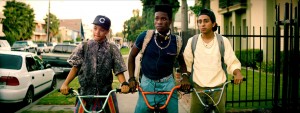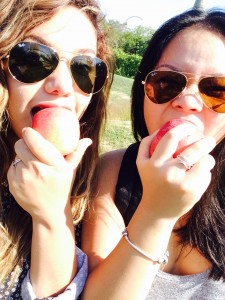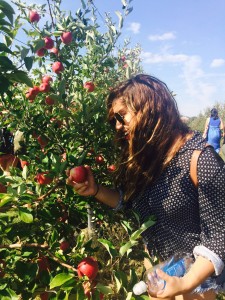The Cornell Food and Brand Lab is SO COOL! & so were the guests for this week’s Rose-Becker Cafe.
I learned about some interesting research they’ve done…..
1. In buffets, place the low-calorie food at the beginning of the table and the highest calorie food at the end because people will fill most of their plate with the first 3 items.
2. If you give someone something without a choice, they won’t think about how much they like/ appreciate it. (Happens with everything right? Not just food) But if you give them a choice between two items like carrots and celery, you start thinking about both of them and there you develop a preference for one. Once you choose it, you eat it to validate your decision. Now I know to ask my brothers whether they want to eat Salad A or Salad B instead of just making them eat salad, haha.
3. We make most of our choices through habit or convenience and we make over 200 food decisions a day. (I’m pretty sure I think about food more than anything else)
4. Men eat more when they’re with girls to impress them….. (but doesn’t this backfire because they will have a bigger bill to pay)
5. Food is comfort. Well I already knew that, but its finals week so this is ESPECIALLY relevant.



